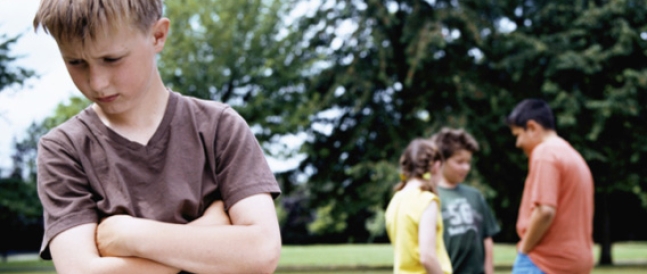Suffering as a bad habit (Part One)
When I was a child, I had a number of rather intense friendships–and I liked intense friendships. There was something about closeness I thrived on, something about emotional intimacy which was meaningful to me. It made me feel fully alive and fully connected.
 Fairly early on (by junior high school, age 14-16) I learned that sharing wounding–talking about those places I was scared, hurt, lonely, uncertain–can be a powerful way to get close to people. It was effective with both genders, but talking about wounding was an especially powerful way to get close to other boys, because at that time in American culture, boys weren’t supposed to be wounded.
Fairly early on (by junior high school, age 14-16) I learned that sharing wounding–talking about those places I was scared, hurt, lonely, uncertain–can be a powerful way to get close to people. It was effective with both genders, but talking about wounding was an especially powerful way to get close to other boys, because at that time in American culture, boys weren’t supposed to be wounded.
Boys were supposed to be strong, manly, and tough, so opening up my wounded side to another boy felt almost illegal, like sharing a secret that wasn’t meant to be shared. It was intimate, forbidden, and the bond produced by the sharing was quite intense. And if another boy shared his wounding back with me, well. We were all set. Best friends forever.
I don’t know why I developed that way, but I did. It’s not like I couldn’t bond with people over exhilarating positive experiences–sports, family vacations, and so forth–certainly I did that too.
But somehow I recognized a special power around sharing wounding, and I went after that experience more and more. And I got stuck there.
As I became more and more in touch with wounding, with my unhappy, needy, “somebody please help me” side, I started to identify with that part of myself and learned to talk about it in greater and greater detail. By my 20’s I could talk about my own wounding the way a sommelier talks about wine; I noticed flavors of wounding that most people never even know about.
While I was also having happy, contented and “good enough” experiences in my life, I didn’t pay much attention to them. I developed a practice of directing my attention to unhappy, discontent and “not good enough” feelings because, as I look back, they had become my primary mechanism for connecting with others, a subtle way of getting others to engage me. Before long, my emotional wellbeing was the responsibility of my friends; it was my job to tell them the details of my suffering, and it was their job to say things that would help me feel better.
Simultaneously and not surprisingly, I attracted more and more friends who were “helpers.” There are a certain number of people who thrive on being helpful to people in need. Their sense of worth is derived from their ability to be helpful to others. While they very often come from truly loving hearts and good intentions, they are prone to a disorder called “enabling behavior” which, ironically, tends to make the guy who needs the help even more helpless than he was to begin with. The more I surrounded myself with people intent on helping me with my wounded, needy self, the more wounded and needy I became. The system started to feed off of itself like a tornado, winding up tighter and faster.
And that all came to an end during one particular party in grad school.
My housemates were throwing a big party at our house, and I was upstairs studying in my room. I had every intention of attending the party; in fact, I was longing for that party. I’d been waiting all week for it. I was lonely, and eager for the chance to connect with a bunch of people in a festive environment. But I decided, for some strange reason, to play a little game: I needed to know I was wanted at the party, and it was my friends’ responsibility to make that known.
So I sat in my room, “studying,” until the appropriate number of people came upstairs, knocked on the door, and said, “hey, are you coming downstairs soon? Everybody is asking about you!”
One by one, my friends came upstairs and asked when I would come to the party….and one by one, I said, “oh, I have to study just a little bit more, this test is really making me nervous…but I’ll be downstairs soon.” One…two….three….perhaps a half dozen people came throughout the evening and asked me–practically begged me–to come downstairs.

Maybe you already guessed the ending. I never made it to the party. I spent the evening in my room, lonely, desperate to connect with other people, waiting for someone to come and rescue me from my feelings of being unlovable and unwanted, almost as though I expected someone to come and physically carry me downstairs. I kept myself from going to a party I had waited for all week, went to bed lonelier than ever, and pondered how fucked up my life had become.
And that was the end of that particular, peculiar practice of mine.
I don’t completely understand what happened that night on a psychological level, but I realized that the strategy that had worked for me since junior high school was no longer working. What once seemed a clever way to get close to others had become decidedly maladaptive, pointedly dysfunctional. That night I remember vowing, “I am NOT going to be this needy. I am NOT going to be this dependent on other people for my happiness. I’m going to end this, right now. I’m going to completely change my personality.”
Simultaneously, an inner voice appeared, sort of a coach/teacher voice inside. It wasn’t unloving, but it was harshly honest. It said something like this: “Good grief, son, don’t you have any pride in yourself whatsoever? Aren’t you ashamed of this behavior? Do you want to go through life like an open running wound waiting for others to come bandage you? You really haven’t a single muscle of your own? This is pathetic. You have two legs of your own; why are you waiting for other people to carry you where you want to go? You’re behaving like a helpless baby at 23. Suck it up, buddy! Become a man. Grow up. Learn to take care of yourself.”
Those two things together then resulted in what I call the “closing of the blast door:”

I vowed I would no longer be needy of others, and from that day on, I wasn’t. I vowed that I wasn’t going to pay so much attention to my wounding. I was not going to dwell on negatives in a way that made me miss the happy moments, the parties, of my future. I was going to find a way to be happy, and it was not going to depend on the behavior of others; it was going to come from within me. And I felt myself close the mighty internal door, with a “clunk.” There would be no more talking about my wounds with others, not for 10-15 years. I would find some other way to connect. I was going to end what had become simply a bad habit at that point, a habit of moping my way through life.
Believe it or not, the blast door ended up being a good move for me–in the short term. For a decade or so, it helped me learn other ways of connecting with people, other ways of getting my needs met including taking care of them myself. It opened some new developmental pathways for me.

And it also helped me learn how to celebrate life, which, strange as it may sound, was a skill I really hadn’t learned yet. I knew how to suffer like the best of the martyrs, but I hadn’t yet learned how to take in a decent sunset, let alone properly celebrate a birthday. So I spent a great deal of that part of my life learning how to connect with people around celebration, happiness, and recreation. I happened to live in LA during that part of my life which, I will say with a smile, was a supportive environment in which to learn those particular skills.
As you may have guessed, that’s not the end of the story. The blast door doesn’t stay closed for the rest of my life. Blast doors have some significant downsides, especially where intimacy is concerned. But somehow that move laid the groundwork for what came next.
You’ll have to come back next week for part two of this story, which has a happy ending. (That phrase is for you, Paul.) See you then!
Have thoughts you’d like to share?
Touch Practice is a sacred practice for me, and part of that is keeping confidences sacred. While a name and e-mail address are required to post a comment, feel free to use just your first name, or a pseudonym if you wish. Your e-mail address will never be seen by or shared with anyone. It is used to prevent spam and inappropriate comments from appearing in the blog. I’d really like to hear from you!















Kevin, thank you for sharing this! I identify so much with what you wrote. I have spent so much of my life seeing myself as martyr/victim and have paid a huge price for that. Fortunately, I have paid attention to some recent wake-up calls and now I am investing my time and energy into being fully responsible for the beautiful, rich life I am creating. I look forward to hearing more about your experiences.
John, thanks very much for your comment. I’m hoping that many people can identify with at least a piece of this (it’ll make me feel like perhaps I wasn’t so strange growing up after all!) I hope you’ll come back for Part Two–it gets better, as they say, and I feel like I learned big lessons from this experiment, not just for my own life, but in the way I engage Touch Practice with others. Great to hear from you; please keep in touch!
Kevin, simply beautiful – and I can relate as both the “wounded” and the “helper”. So magical when we can break out. Thanks for sharing so honestly, for continually striving to speak your truth.
Hey my friend, thanks for the comment. I’ve already heard from a half dozen guys who have said how much they can relate to one side or the other of the wounded/helper binary. Maybe I wasn’t as unusual a kid as I thought I was!
Thank Kevin…. i do love a Happy Ending! Reading this i think about how i do the same thing when it comes to contacting people via text, calls, fb or what ever means of communication. I get to a point where I’m tired of always being the first to initiate contact so then i will see how long i can wait till certain people contact me. While waiting i get depressed and start thinking negative thoughts about the validity and solidness of the friendship. I play mind games with myself about love and aceptance and worthiness.
WHAT A WASTE OF TIME… cause deep down i know that the friendships are solid. that they do love me and that life gets hectic in our crazy worlds.
Thanks for all you do Kevin.
Paul: yup….been there, done that. Promise me if I ever fall behind on fb or e-mail you’ll always give me a second chance? 🙂 Hugs–Kevin